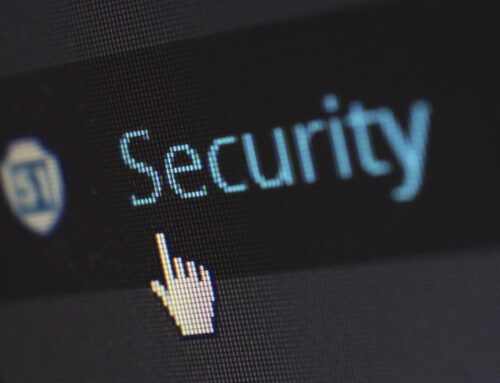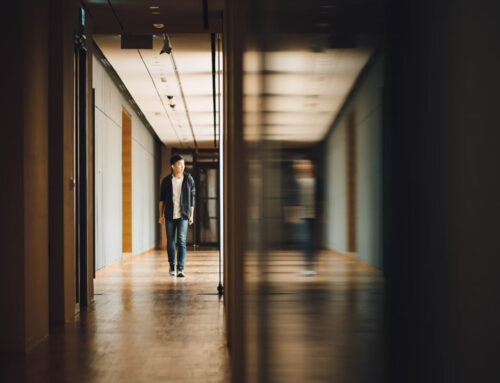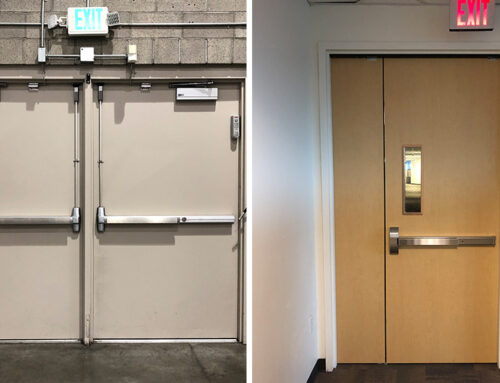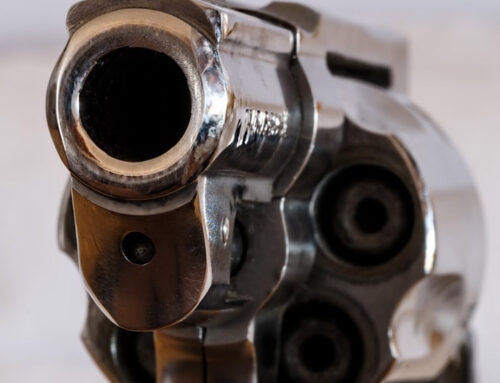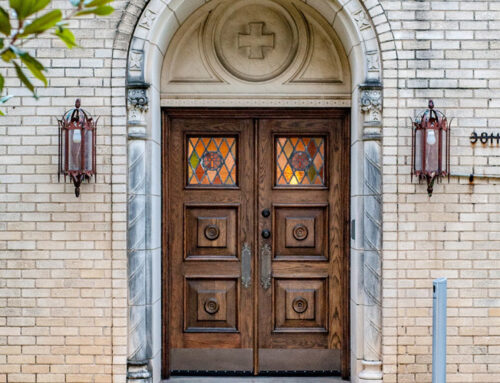Will your doors stay locked or stay unlocked when the power goes out? While modern access control systems have battery back-ups in the case of a power outage, these can fail. Then, what will happen with your doors? It depends on whether you chose a fail safe or fail secure system. Let us walk you through the differences between these systems and which you should choose.
Fail Safe Locks
Fail safe locks will be unlocked if all power to them fails. In order to relock these doors, you would need to resupply power to your building or just wait for the power to come back on. Fail safe doors are designed to let people out of the building in the case of a power outage. They are necessary for exit doors and those that lead to them, so people can escape in dangerous situations or just leave during power outages.
However, the downside to fail safe locks is that the building is more exposed when the power goes out. It is possible that someone would gain unauthorized access to the building and steal or otherwise cause issues.
Fail Secure Locks
Fail secure locks require electrical power to open. That means when the power is out, they remain locked. These doors are intended to protect valuables when the power goes out. There is the risk that people will intentionally try to cut the power to a building to gain access to the valuables inside, but these locks will prevent that risk. They ensure that a building, or a portion of the building, remains secure even if the power is discontinued.
However, fail secure locks can still be exited in the case of an emergency. Imagine a door on a jewelry store. You want a door like this to be fail secure, so no one can break into it if the power goes out. However, employees of the store still need to evacuate if there is a fire or other emergency that has caused the power loss. These doors can still be opened from the inside, and they can’t be opened from the outside.
Which Should You Choose?
You may need a mixture of fail safe and fail secure locks on your facility. Building codes, fire codes and other regulations commonly require fire doors and exit doors to be fail safe so that they are easy to use in emergencies and accessible for firefighters.
However, you may want a select few of your doors to be fail secure. Small rooms that contain valuables are often equipped with fail safe locks. The same goes for labs with expensive equipment, server rooms with valuable information or access points, and other similarly important spaces.
Get Professional Help
Which doors should be fail safe or fail secure on your property? Get professional help to make your decision so that you can be sure you’re following building codes and keeping your facility as safe as possible.


